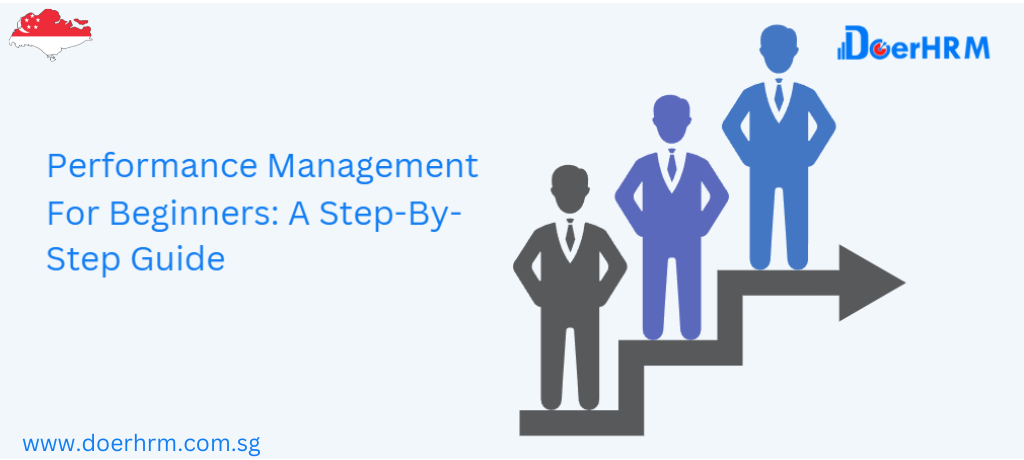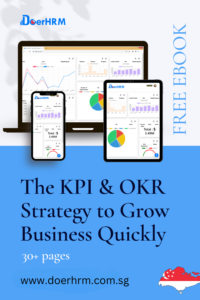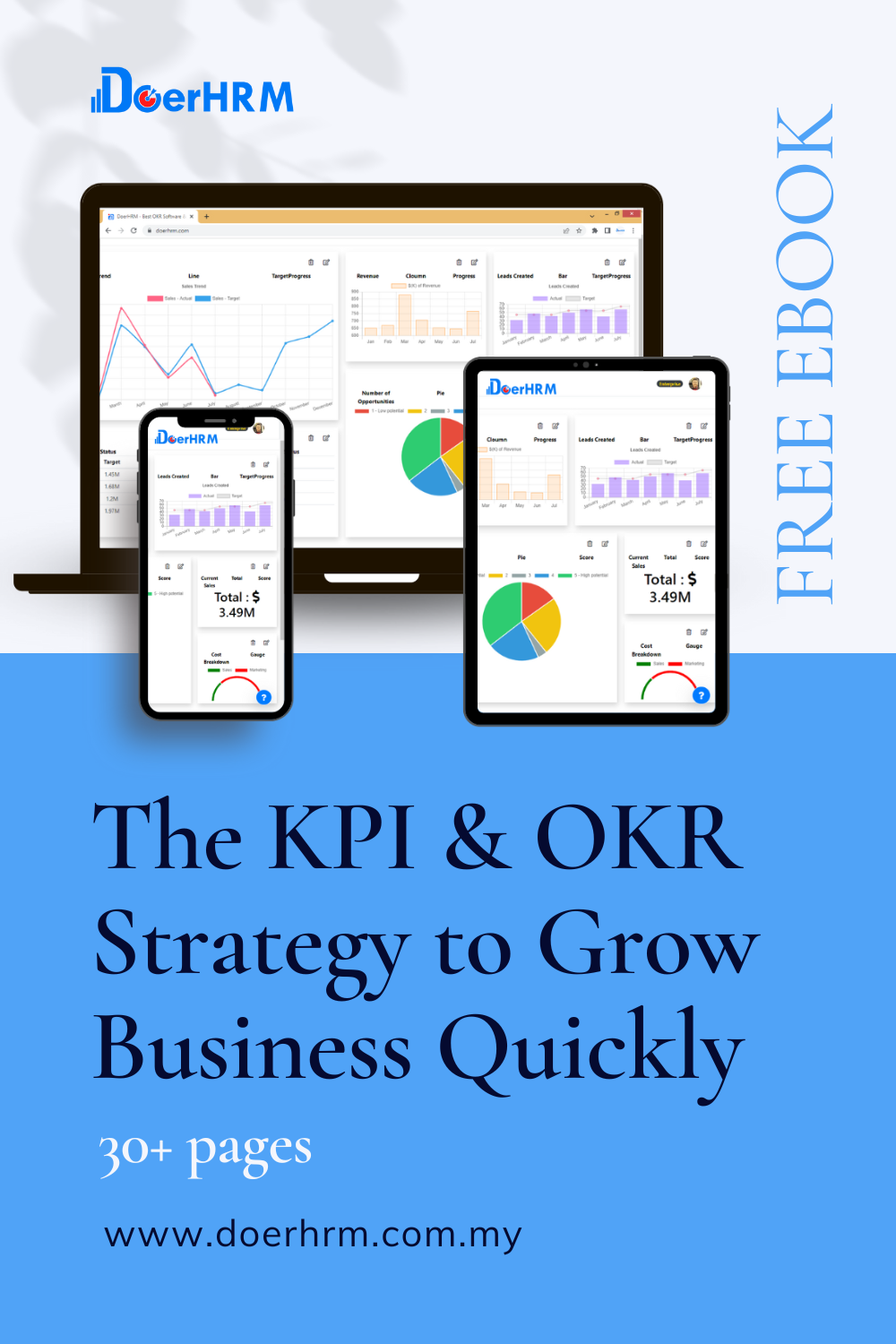Since the inception of the term “performance appraisal,” performance management has evolved significantly and is now more critical than ever.
The concept of a performance review is generally unpopular among both employees and managers. Even individuals proficient in their roles often feel defensive about their work, leading to a readiness for conflict on the part of managers.
In fact, 81% of HR managers are modifying their approach to performance management to increase employee engagement. This guide to performance management equips you with the knowledge to make your work successful and productive.
Performance management essentially facilitates continuous communication between employees and managers. It functions as a strategic feedback system aligning the goals of both the company and its employees, fostering increased engagement and job satisfaction among employees.
We often think that performance management means the tools used in appraisal meetings, such as;
- Forms
- Surveys
- Conferences
Performance management extends beyond that simple definition. It plays a pivotal role in various aspects of human resource management, encompassing activities ranging from the recruitment of personnel to their retention within the organization.
Why is it Necessary to Have a Performance Management System?
The main goal of performance management is to make sure that employees know what is expected of them at work. When a team knows what they’re working for, they’re more likely to get things done. In particular, a performance management system:
- Sets out the company’s goals and expectations in a clear way.
- Helps HR managers become better leaders
- Encourage good performance through a fair reward system
- Engages employees more and keeps them around
In order to manage employee performance effectively, four steps should be taken.
Managers should attend training on performance management techniques
An effective leader is the foundation of any performance management system. In order to be successful, managers need to know how to motivate their staff and achieve their goals.
Keep in mind that goal setting is a group effort, so HR managers need to consult with employees at all levels of the organisation. Problem-solving, encouraging top performance, and increasing profits are all possibilities.
Recognize and Honor Outstanding Contributors
Rewarding employees is also an important part of performance management. Over half of all workers say they would be willing to put in more effort if they felt more appreciation from their managers. Create a formal programme to thank and reward your employees for their hard work. That way, the hard work of your team is constantly recognised and appreciated.
Take action to fix performance issues
Nobody enjoys having to face up to their own lacklustre performance, but it is essential that areas of weakness be isolated and addressed in a constructive manner. Reasons for underachieving include:
- Workplace stress at dangerously high levels
- Bad management
- Confusing divisions of labour
- Misguided methods of evaluating employee performance
To improve performance, HR managers can benefit from a performance management system that helps them effectively communicate with their staff, pinpoint obstacles, and plot a realistic course of action.
Create an Ongoing System of Feedback
A yearly review is only one part of performance management. Managers must be trustworthy figures who are open with employees about major company decisions and receptive to suggestions.
A company’s productivity will increase in proportion to the openness and frequency of its lines of communication. The stress of the annual review is replaced with the relief of continuous performance management thanks to this real-time method.
How important it is to manage performance?
A performance management system assists an organisation in three critical areas:
Employee Engagement
When a performance review occurs only once a year, employees go for long periods of time without knowing whether their work has any impact on the company. Employee engagement suffers as a result because most teams prefer real-time performance feedback to motivate them.
Your performance management system should ideally include daily, monthly, and quarterly feedback from leaders and employees. This keeps the company’s goals in focus and allows for faster problem-solving.
Retention of Employees
Employees who have frequent and consistent performance discussions with management are more likely to stay with the company. Companies can use a performance management system to professionally develop their employees, offer incentives and rewards for good performance, and provide opportunities for training and upskilling to their teams.
Leadership Training
A performance management system promotes collaboration between leaders and their teams, which has two major benefits. First, leaders improve their ability to guide individuals and groups toward company goals. Given the diverse backgrounds, personalities, and skills that employees bring to an organisation, this is a significant challenge.
Second, performance management can identify potential leaders among employees quickly. Team members with exceptional interpersonal skills can be trained for more suitable or higher positions within the company, saving on recruitment and turnover costs.
Methods That Have Proven Effective In Managing Performance
So here are the most important parts of performance management that you should include in your HR plan.
Describe Every Goal in Depth
Performance management means figuring out what the end goals are and what actions will get you there. For example, if your goal is to keep good people on your team, you might offer them training and mentorship. Get feedback on each plan from both employees and top management, since your performance management system is for everyone’s benefit.
Check-in once a month
The best way to find and fix problems before they get too big for your team is to have a performance management meeting once a month. Having meetings more often also saves time. Annual meetings that last all day are less effective than meetings that are shorter. With so much time between performance meetings, even a full day might not be enough.
Create Solid Guidelines
Find out what the specific chances are, what the limits are, and how much room there is for experimentation for each performance goal. Your team will find it much easier to follow clear instructions than vague instructions that raise more questions than they answer.
Give Feedback That Will Help
Less pointing the finger and more open, constructive feedback should be part of a system for managing people’s work. Your performance meetings will be less tense if your organisation has a culture of respect. Remind your team that you’re all working toward the same goals and that everyone is responsible for their part in the company.
Talk to all of the departments.
All of the company’s departments, not just the sales and marketing teams, should be involved in performance management workshops. You’ll learn new ways to build on each of your business’s unique parts to help you succeed.
Managers should also be trained.
Not only your employees can benefit from training, but so can everyone else in your organisation. Managers can work with mentors or coaches who are experts in their fields to improve their skills or sign up for higher education programmes that will help their careers.
Keep giving rewards for good work
You don’t have to wait until the end of the year to give your team a reward for doing a good job. Set goals for performance and give rewards when they are met. Offer unique rewards in addition to money. Use a tiered reward system to acknowledge both small and big accomplishments.
Recognize every performance problem.
Problems with performance can come from many places, not just the employees. For example, your team could be very motivated and good at what they do, but they might not have the resources they need because of problems in the supply chain, internal bottlenecks, or old company policies.
Conclusion
Adopting the right approach, performance management can become a highly effective and enjoyable process for leaders and teams in any organization. The crucial step is moving away from traditional, paper-based, annual performance reviews. By leveraging technology, initiate a continuous performance evaluation process. Utilize this guide to formulate a well-structured plan for effective performance management today.






